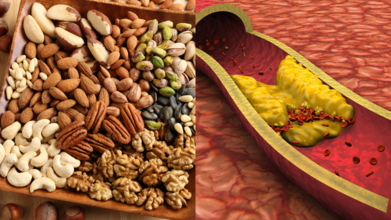- Health Conditions A-Z
- Health & Wellness
- Nutrition
- Fitness
- Health News
- Ayurveda
- Videos
- Medicine A-Z
- Parenting
- Web Stories
Why Do We Scratch An Itch When We Know It Hurts?

Scratching an itch can be really satisfying but also annoying at times. You often find yourself mindlessly scratching your arms or whatever skin is exposed as these are the places mosquitos commonly bite. While this is may not be a significant activity, it is when you catch an infection or start feeling itchy because of any allergen, it can become difficult to navigate. Many people even hurt themselves while itching because, even though it hurts, the itch needs to be scratched otherwise it will drive you crazy! Doctors often advise people not to scratch wounds and inflamed areas as it can become worse and infect existing wounds.
A recent study published in the Science Journal has revealed something interesting. The itch-scratch cycle is very fundamental in allergic dermatitis and arthropod reactions, in which itching and scratching feed back into the cycle and enhance inflammation to worsen the disease. Such research underlines the evolutionary aspect of scratching by serving a purpose through a neuroimmune axis despite its pathogenic nature. It reconciles apparently paradoxical properties of scratching by considering both roles of scratching—pathological and potential adaptive responses.
Scratching an itch is something we all do, but it turns out there's more to it than just habit. New research shows that scratching is actually a complex process with both positive and negative effects. While it can make skin inflammation worse, it also helps the body fight off infections by bringing immune cells to the skin's surface. This discovery helps explain why we scratch and offers hope for better treatments for chronic itch or skin conditions. It's a bit of a puzzle: how can something which is bad for your skin actually be helpful? This research helps us understand that paradox.
Why Do We Always Scratch An Itch?
When something itches, our natural reaction is to scratch. This is especially true with skin conditions like dermatitis or bug bites. The problem is that scratching often makes things worse, creating a vicious cycle- the more you scratch, the more inflamed your skin gets, and the itchier you feel. This "itch-scratch cycle" can be really hard to break. It's not like pain, which usually stops us from doing something that hurts. Scratching, even though it can be damaging in the long run, often feels good in the moment, which makes it hard to resist.
What Happens When You Scratch Your Skin?
Scientists wanted to understand exactly what happens when we scratch. Researchers used special mice to study how certain nerve cells that sense itching, called NP2 neurons, affect inflammation. They found that scratching activates pain-sensing nerves. These nerves then release a chemical called substance P (SP). SP then triggers immune cells called mast cells. These mast cells release other chemicals that attract white blood cells to the area, causing inflammation. So, scratching sets off a chain reaction that leads to inflammation.
Surprising Benefits of Scratching
Even though scratching can worsen skin conditions like dermatitis, it also has a surprising benefit: it helps the body fight infections. It seems that scratching can help reduce the amount of harmful bacteria, like Staphylococcus aureus, at the site of an injury. It might even play a role in balancing the skin's microbiome – the community of microorganisms living on our skin. However, this is a complex relationship, especially for people with chronic skin conditions like eczema, where scratching can disrupt the microbiome and worsen the condition.
Reasons Why An Itch Could Be Sign Of An Underlying Disease
According to Cleveland Clinic, where and when the itch is happening does matter in understanding whether it is an issue if not. Some people itch even when they are asleep and there have been cases of people itching themselves till they draw blood even in their sleep. A 2019 study done by the American Academy of Dermatology concluded that itching related to a liver disease starts at the palm of your hand and spreads, similarly and iron deficiency or anemia related itch could develop as red and bumpy skin that feels sore when you scratch it, it is called an anemia rash. Any itch that persists for a long time should be checked out by a doctor.
This new research suggests that scratching isn't just a bad habit; it's actually an ancient defense mechanism that evolved to protect us from infection. While it can be harmful in some situations, it also plays a role in our immune system's response to injury. Scientists believe that understanding this complex process could lead to new and better treatments for chronic itching.
What Is Pulmonary Fibrosis and Why That Annoying Cough Might Be More Than Just a Cold

Credits: Canva
If you’ve been coughing for weeks, blaming it on “lingering winter sniffles” or chalking it up to “just getting older,” it might be time to step away from the cough syrup and lean in for some uncomfortable truth. Your cough could be more than a seasonal annoyance. In rare but serious cases, it could be a red flag for a life-limiting condition called pulmonary fibrosis.
What is Pulmonary Fibrosis?
In plain terms, “pulmonary” means lungs, and “fibrosis” means scarring. It’s a serious, progressive condition where lung tissue becomes scarred and stiff, making it increasingly hard to breathe.
Reportedly, there’s currently no cure. Treatments exist, but they mainly slow down the damage rather than reverse it. The sooner you get diagnosed, the better your chances of managing symptoms and that’s where spotting the signs early is crucial.
Symptoms to Watch For
- Shortness of breath (especially when climbing stairs or speed-walking to catch the bus)
Why That Cough Happens
Coughing is your body’s bouncer, booting out anything that might harm your lungs — dust, smoke, rogue crumbs, the works. The process involves your vocal cords clamping shut, then snapping open with a burst of air.
With pulmonary fibrosis, this reflex can get stuck on a loop. Coughing irritates the vocal cords, which makes you cough more, which irritates them further, a vicious cycle that can turn even a quiet cup of tea into a coughing fit.
The Four Flavours of Cough
- Acute cough – Lasts less than three weeks; often tied to infections or irritants.
Coughs can also be:
- Dry/unproductive – Triggered by things like temperature changes, dusty air, or laughing.
Who’s More at Risk?
While pulmonary fibrosis can happen to anyone, your risk might be higher if you:
- Are over 50
Managing the Cough
A pulmonary fibrosis cough often doesn’t respond to standard cough medicines. Instead, treatment usually focuses on easing symptoms and improving quality of life.
Your doc may recommend alternative medications used for chronic cough in other conditions. These don’t cure the scarring but can make the coughing less intrusive. They’ll also want to check for other contributing factors like acid reflux, sinus issues, or side effects from medication, because if those are making things worse, tackling them can help.
Everyday Coping Tricks
While you work with your doctor, you can try a few lifestyle tweaks to manage coughing fits:
- Avoid smoky, dusty, or heavily polluted spaces
Pulmonary fibrosis is rare, but catching it early can mean more treatment options and better management. Plus, you’ll finally know whether your cough is from a stubborn cold or something that needs closer attention. Your cough could be a harmless side effect of a dusty ceiling fan or it could be your body waving a red flag.
Scientist Reveals the Tiny Foods That Can Transform Your Cholesterol in Just 10 Days

If you’ve ever stared at a packet of mixed nuts wondering whether to sprinkle them over your porridge or just eat them by the handful, here’s your permission slip: go for it. According to Dr Sarah Berry, a professor at King’s College London and Chief Scientist at ZOE, nuts and seeds are not just snackable; they are good for cholesterol crunching. In fact, swap some of your less healthy fats for these nutritional powerhouses, and you could lower your cholesterol by up to 10 per cent in just 10 days. That is faster than most fad diets.
The 10-Day Cholesterol Challenge
High cholesterol often feels like one of those invisible problems, until it suddenly is not. It can quietly build up in your arteries, increasing the risk of heart attacks and strokes. But Dr Berry, during an appearance on the Zoe podcast, said that you can make a real difference in under two weeks by tweaking, not overhauling, your diet. It’s not about eating less fat; it’s about eating the right kind of fat.
And this is where most people get it wrong. “Don’t do a low-fat diet,” Dr Berry warns, calling the idea “radical” to anyone still following decades-old advice. Instead, aim for a moderate-fat diet rich in polyunsaturated and monounsaturated fats—exactly the kinds you’ll find in nuts, seeds, and certain oils.
Why Low-Fat Diets Miss the Point
It is tempting to think cutting fat will cut cholesterol, but Dr Berry explains that’s a trap. Not all fats are bad. Saturated fats, found in red meat and some processed foods, can push LDL cholesterol—often dubbed “bad” cholesterol—into dangerous territory. But polyunsaturated fats, abundant in seeds, seed oils, and many nuts, do the opposite.
Simply adding nuts to your meals, whether as a snack, salad topping, or nut butter, can slash LDL cholesterol by 5 to 10 per cent. You have to make a swap. This benefit comes from replacing “harmful” fats, like those in certain animal products and fried foods, with healthier plant-based fats.
Seeds: The Cholesterol Fighters
Sunflower seeds, flaxseeds, chia seeds—they’re all loaded with polyunsaturated fatty acids that support heart health. Stir them into yoghurt, blend them into smoothies, or scatter them over roasted veggies. You’ll barely notice the extra effort, but your arteries will thank you.
Seed oils, like sunflower and flaxseed oil, can also be smart choices in moderation, adding healthy fats to your cooking without the cholesterol-raising impact of certain animal fats.
Rethinking Dairy, Meat, and Carbs
Dr Berry isn’t out to demonise all animal products. Fermented dairy like yoghurt and cheese gets a surprising green light. These foods, she says, don’t have the cholesterol-raising effect you might expect from their saturated fat content. That’s not permission to live on brie and cheddar, but it is a reason to stop fearing your cheese board.
Red meat, however, is a different story. Packed with saturated fats, it’s a direct contributor to rising cholesterol levels. Swapping steak nights for lentil stews or chickpea curries a couple of times a week could make a noticeable difference to your numbers.
Then there’s the carbohydrate conundrum. The real trouble lies with refined carbs like white bread, white rice, and sugary snacks. These are rapidly processed by your body and can be converted into triglycerides, which worsen cholesterol profiles. But whole grains are firmly in the “good for you” column. Wholegrain bread, brown rice, oats, and quinoa can help improve cholesterol levels when they replace the refined stuff.
Building Your 10-Day Cholesterol Menu
Swap your morning white toast for porridge topped with walnuts and chia seeds. Your mid-morning biscuit could become a small handful of almonds. At lunch, toss sunflower seeds into your salad, and use olive or sunflower oil for dressing. Dinner might feature grilled salmon or chickpeas instead of steak, with a side of quinoa instead of white rice.
Why This Works So Fast
Cholesterol levels can be surprisingly responsive to dietary changes. LDL cholesterol particles are constantly being produced and cleared from your bloodstream. When you replace saturated fats with healthier fats, you improve your body’s ability to remove LDL cholesterol. Combine that with reducing refined carbs and upping your wholegrain intake, and the improvement can be measurable in just days.
Dr Berry’s advice is refreshingly realistic: no calorie counting, no extreme restrictions, just sensible swaps. It’s about building habits you can maintain beyond the initial 10 days, keeping your cholesterol low for the long haul.
Forget the idea that lowering cholesterol means bland food and joyless salads. With nuts, seeds, and the right fats, you can eat deliciously and still give your heart a health boost in record time.
Why Your Tattoo Looks 'Cloudy' During Healing: Experts Demystify Recovery Process

You walk out of the tattoo studio with fresh ink that looks bold, bright, and perfect. But within a few days, you notice the colours seem duller, almost blurred. Do not worry! This cloudy look is a normal part of healing. According to dermatologists and tattoo artists, that milky veil over your design is not the end of your tattoo dreams. It is simply your skin doing its job.
The Science of the Skin Screen
As Dr Pragati Gogia Jain, DNB (Dermatology) at ApolloMedics Hospital, Lucknow, explains, our skin has layers. The top layer, called the epidermis, is made up of keratinocytes. When these cells are young, they’re packed with organelles and nuclei, making them opaque. As they mature, they lose these structures, becoming more transparent.
When you get a tattoo, the needle bypasses the epidermis and deposits pigment in the dermis. This process causes a controlled injury, triggering inflammation. In the days that follow, damaged keratinocytes in the epidermis start shedding (desquamation), and the fresh replacements are immature and cloudy.
“This cloudy layer scatters light, making the tattoo look dull,” says Dr Jain. “It’s temporary, and as the epidermis completes its 28-day turnover cycle, your tattoo will regain its clarity.”
What’s Happening Beneath the Tattoo Ink
Sahil Bali, tattoo artist at Devil’z Tattooz, says the fresh-out-of-the-studio vibrancy is like an Instagram filter: beautiful, but fleeting. “Right after we finish, the ink is just beneath intact skin, so the colours look sharp,” he says. “But as your immune system gets to work, a thin layer of scabbing or peeling skin forms. It’s made of dried plasma, old skin flakes, and natural oils, which aren’t transparent.”
This layer dulls the appearance of the tattoo. From day four to day ten, peeling starts. The temptation to pick at those flakes is real, but doing so can yank out pigment and cause patchy healing. “Hands off is the golden rule,” warns Bali.
Why Tattoo Aftercare Matters
While most cloudiness is part of the healing process, poor aftercare can make it worse. Dr Jain says that slathering on too much ointment can trap moisture between skin layers, creating a hazy effect. Over-moisturising can also make the peeling phase messy, while under-moisturising can slow healing.
The golden trio of aftercare:
- Keep it clean, but not soaking wet
- Moisturise lightly with fragrance-free ointment or lotion
- Avoid scratching, picking, or exfoliating the area until it’s fully healed
The Healing Timeline: What to Expect
- Week 1: Swelling and inflammation can make colours look slightly different. Cloudiness starts to creep in.
- Week 2: Peeling is in full swing, and the haze is most noticeable. Do not pick.
- Weeks 3–4: New skin settles in, clarity returns, and your tattoo looks almost like day one.
- Weeks 4–6: Full healing. Your tattoo now has its true colours and crisp lines.
Your tattoo’s journey is a cycle: vibrant due to fresh ink, hazy during inflammation and peeling, then clear again as the skin regenerates. In short:
- The cloudy phase is temporary.
- Don’t touch, scratch, or peel.
- Follow optimal aftercare to prevent infection.
- Always ensure your artist uses fresh, sterilised needles.
As Bali puts it, “Your tattoo is for life. A couple of hazy weeks is nothing compared to years of wearing a clear, beautiful design.”
© 2024 Bennett, Coleman & Company Limited

